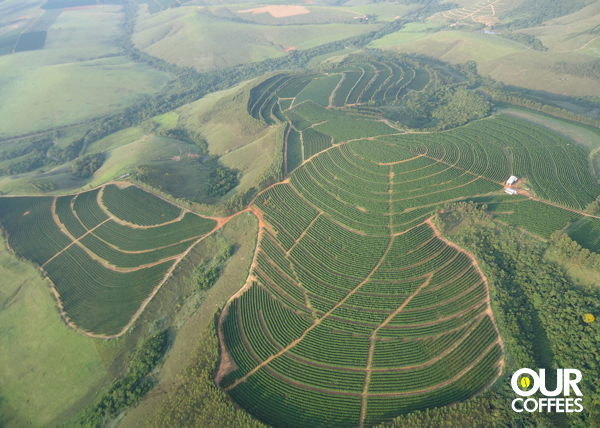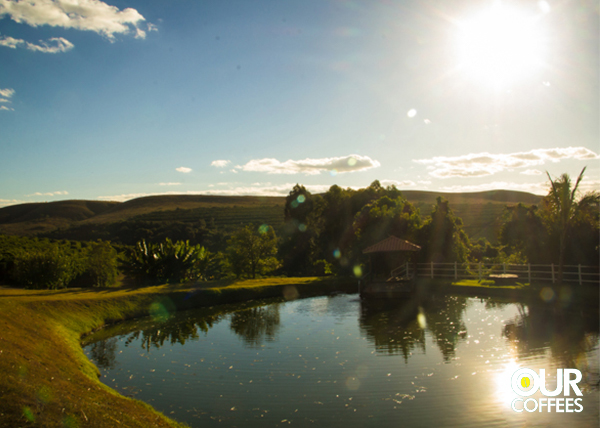

If you see an offer from Coffee Friend that does not reflect the stated discount, or a couponcode does not work, please let us know and we will correct it as soon as possible.
| Discount | Description | Expiry Date |
|---|---|---|
| 50% | COFFee Friend cOFFee subscription 50% OFF 50OFF | 2099-12-31 |
| £10 | Discounts cannot be combined co10ff100ee | 2099-12-31 |
| 10% | COFFee machines "Sage" Discount codes cannot be combined s09ag10e | 2099-12-31 |
| $10 | Take $10 OFF the Wave when you sign up for our mailing list | 2099-12-31 |
| Free shipping | Free shipping to the U S on all orders | 2099-12-31 |

Even though the whole coffee world abides by similar rules and procedures, each cup of coffee is still a unique masterpiece. This is because, as your coffee inches closer and closer towards you, its flavours are affected by the smallest of details at every single stage.
Coffee connoisseurs have borrowed the term terroir from French wine experts. It encompasses all of the numerous environmental conditions surrounding the coffee plant: this includes its species, climate, soil, harvesting method and manner of processing. The term also incorporates human activity. Generally, it can be said that terroir is the very story of a certain plot of land and its future harvest. This means that the taste of your coffee doesn’t really depend on the chosen roast level, the preferred brewing method and the like — all these can really do is unveil the qualities already hidden inside the beans.
The primary flavours of any coffee bean result from the environment it’s been grown in — which is why traceability is so crucial. Nowadays, manufacturers don’t stop at simply letting you know the coffee’s country of origin. You can even find out the region and the estate your coffee beans come from! More and more reliable coffee businesses are now committing to supplying their customers with high-quality coffee beans whose origin is fully traceable.

The impact of temperature on the taste of your coffee appears in various guises over the course of its journey from soil to cup. At least one of these guises will sound familiar to pretty much every coffee lover out there. Have you ever heard others saying that coffee should be brewed, not burned? In other words, you shouldn’t pour boiling water over your coffee. You can take advantage of a simple tip: once the water has boiled, set it aside for 1–2 minutes, allowing the temperature to drop to around 94 °C.
Coffee faces its first baptism by fire way before it’s exposed to water though. In the hands of roasters, it’s as if green beans suddenly come alive: heat causes them to swell up and morph from hard, green cherry pits into the brown beans that we all know and love. During this process, it’s crucial to avoid burning them. As fans of Star Wars would say, ‘If you’re looking for great flavour, stay away from the dark side!’ Beans with a roast that is too dark—or beans that have been, quite simply, charred—constitute one of the greatest crimes of the coffee world. On the other hand, a very dark roast is often used to mask the defects found in low-quality beans.
Man controls the roasting process—however, up to that point, the surrounding temperatures are all up to nature. Changes in temperature affect the conditions that the growing coffee plant and its cherries are subjected to. They can also play a critical role in the drying of beans that are processed naturally. Caused by rapid climate change, rising temperatures result in rampant plant diseases and force coffee farmers to plant their trees higher and higher above the ground in an effort to ensure favourable weather conditions. It’s an established fact though that as the climate keeps on changing, our favourite coffee flavours are likely to be transformed as well, while growing coffee beans of the highest quality is bound to become more and more of a challenge

What would you do if, while enjoying a cup of coffee, you’d be asked by somebody whether your coffee tastes clean? What would you say? You might start wondering first of all, ‘But can coffee ever taste unclean?’ The answer is simple: yes, it can! As beans mature, various issues can result in undesirable flavours. Most experts describe unclean coffee as characterised by a pungent taste of wood or grass, while the flavour of coffee that’s been properly processed is usually referred to as “clean”.
When talk turns to bean defects, which result in unclean flavours, the first probable culprit is the chosen processing method. For example, some people claim that compared to the washed process, the natural one is more likely to produce various flaws. The natural process involves leaving the whole cherry—pulp and pit included—out to dry and only separating the pit from the pulp at the end of this process. On the contrary, if the washed method is chosen, the pit and the pulp are separated pretty quickly. It takes a long time for the beans to dry out. Moreover, while they do that, coffee beans must be turned over and moved around constantly to ensure that they dry out consistently, mould doesn’t develop and fermentation is kept under control. All of these aspects have a direct impact on the flavour of your coffee.
On the other hand, even if beans have been flawlessly processed, they’re still not completely safe from tasting unclean. For example, a high-quality coffee plant growing at an insufficient altitude and surrounded by weather conditions that aren’t exactly favourable won’t result in a cup of clean coffee, no matter how carefully its cherries have been picked and processed. Aware of the effects of climate change, farmers are now on a search for coffee tree species that would be capable of producing high-quality beans even at relatively low altitudes.

Over the course of hundreds of years, coffee has firmly entrenched itself as an essential component of our culture and social lives. Each of us has—or is still searching for—their favourite coffee variety. Next time you savour a cup of delicious coffee, you may want to stop for a second and think about the challenges it had to undergo in order to provide you with this moment of pleasure. The coffee world is waiting for every one of us to explore it. Now all we have to do is listen to its stories.
Location – Twin Peaks. Special Agent Dale Cooper:
‘Harry, I am going to let you in on a little secret. Every day, once a day, give yourself a present. Don’t plan it, don’t wait for it, just let it happen. It could be a new shirt at the men’s store, a catnap in your office chair or two cups of good hot black coffee.’
Get exclusive coupons with our newsletter
By subscribing to our newsletter you will be informed of the latest coupons and discounts. There are many advantages, subscribe now!
Each month, many shoppers rely on our website to find the best coupons for hundreds of online stores. With a commitment to transparency and trust, we've been helping smart shoppers save for years.
Our team of experienced shopping experts, supported by advanced AI technology, adds hundreds of new codes every day. We ensure authentic savings by verifying each coupon and avoiding misleading "deals" as much as possible.
Every page is kept up-to-date with the latest offers, continuously improved by daily checks and shopper feedback. Learn more about us.
Coffee beans “Caprissimo Belgique”, 1 kg- This blend of coffee beans from Brazil and Honduras (80% arabica and 20% robusta) is sure to impress the fans of traditional coffee flavours. It’s characterised by an intense aroma and a full body. Once the drink’s been finished, a long-lasting aftertaste of dark chocolate and sweet caramel envelops the palate. Created by “Coffee Friend”, the exceptionally popular “Caprissimo” line is perfect for a delicious everyday cup. These coffee bean blends of 5 different flavours are suited both for black coffee drinks and milk-based beverages. Ingredients: roasted coffee beans. Storage conditions: store in a cool place, away from direct sunlight.
| Discount Codes | 16 |
| Best Coffee Friend Coupon | 50% |
| Working Promo Codes | 4 |
| Redeemed Codes | 2 |